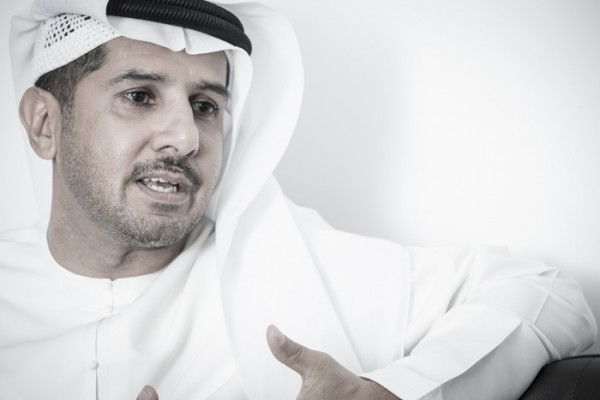
Six years ago, as Dubai heaved itself up from the global economic crisis, one man sat in Starbucks looking for some kind of escape. This was Abdullatif Alsayegh, the-then chief executive of the Arab Media Group and one of the most powerful players in the United Arab Emirates’ media landscape.
The fragility of the economic climate had led to the consolidation of Dubai’s media assets, with much of the Arab Media Group transferred to Dubai Media Incorporated and jobs lost. It was within this environment that Alsayegh decided to go it alone, launching independent agency Alsayegh Media (AM).
“We found that the crisis had hit the region and it was time to do something on my own,” he explains from the agency’s office-cum-funhouse, out in Dubai’s International Media Production Zone. “Starbucks, laptop, thinking – one week of planning. Let’s go do the first fully-fledged integrated agency that can serve everybody in the region. We didn’t just want to create an agency, we wanted to create a movement. It was about how many virgin stories, untapped, untouched, we can take out into the world.”
He continues: “We started at a time when nobody was spending: the first two areas that get hit with any economic crisis are training and marketing. Immediately they cut those budgets. So you had to have that strong heart to say ‘I’m going to do it when nobody else is’. It definitely was a challenge and I don’t want to tell you how many sleepless nights I had. Not being international, you had to start everything from scratch.”
Six years on and AM is now a 200-person-strong team spread across the Dubai hub and Abu Dhabi, with some digital expertise outsourced to India. Built on the back of mostly government and semi-public clients including Abu Dhabi Tourism, the UAE foreign ministry and Abu Dhabi police, plus Dubai Islamic Bank and Sport Council, the agency is now looking to increase its private sector clientele. Ever ambitious, Alsayegh hopes to eventually expand into Scandinavia, London and – the adland jewel in the crown – New York, although he will have to make do with Saudi Arabia and Kuwait for the present.
But when pitted against an increasingly competitive market, both in Dubai and abroad, and with nearly all agencies offering the same ‘fully-fledged integrated model’, what really makes AM really any different from the rest? Part of the secret is the kitchen, says Alsayegh. And he is not joking. “I would say to claim being integrated is one thing. But to showcase their integration model is another. I have my kitchen here and I bring my clients to it and I say to them ‘integration is not just people sitting at their desk, look here is the kitchen’. That’s a must. That person may say, ‘yes I do video’, but then he has to contact 10 suppliers to get them. I have them here: I have the cameras, the lenses and the equipment. I can jump in same day and produce something. That’s the power of integration. It’s when someone says to me give me a full proposal in three days, not three weeks. We all can claim, but how many of us can really showcase and make it happen?
“You need to be a business agency. You are business. If you can’t bring all these elements then you shouldn’t be in this business especially with what’s happening in the market: it’s filtering itself. You understand business, jump on board; if you don’t, don’t waste time. You’re going to be fired in a couple of months. And that’s happening right now. This business does not accommodate laziness.”
Like everywhere else in the industry, long hours are an expected part of life – “minimum 15 hours a day” for Alsayegh himself – but at AM, staff are allowed time “to sleep” should they work late into the night. Laziness is about more than just office hours though; it’s about creating work that truly resonates with the Middle East and not just a global rehash. “My advice is stop taking ideas from the West,” he says. “If someone is thinking in London, New York, Paris then that’s their thinking. Use your brain, come up with your own ideas. There are a lot of ways to come up with ideas, and there is not a lot of this happening. I don’t want to see ideas that are irrelevant to the region. It’s not enough to get a guy in a kandora and a girl in an abaya and say, ‘look this is original’. I’m talking about creating new stories from new.
“We need artists. People who live their art. When I sit in front of the people and they are artistic, they are funky you know and they are different. And we should accept that.”










